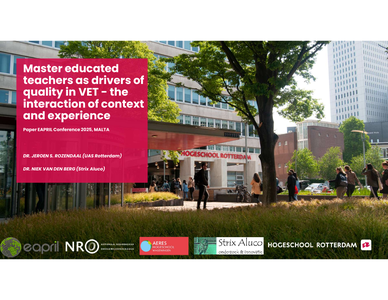"Purpose: This study aims to explore the perspectives of mental health professionals who are in a process of integrating their own experiential knowledge in their professional role. This study considers implications for identity, dilemmas and challenges within the broader organization, when bringing experiential knowledge to practice. Design/methodology/approach: As part of a participatory action research approach, qualitative methods have been used, such as in-depth interviews, discussions and observations during training and project team. Findings: The actual use of experiential knowledge by mental health care professionals in their work affected four levels: their personal–professional development; the relation with service users; the relation with colleagues; and their position in the organization. Research limitations/implications: Because of its limited context, this study may lack generalisability and further research with regard to psychologists and psychiatrists, as well as perceptions from users, is desirable. Social implications: According to this study, social change starts from a bottom-up movement and synchronously should be facilitated by top-down policy. A dialogue with academic mental health professionals seems crucial to integrate this source of knowledge. Active collaboration with peer workers and supervisors is desired as well. Originality/value: Professionals with lived experiences play an important role in working recovery-oriented, demonstrating bravery and resilience. Having dealt with mental health distress, they risked stigma and rejections when introducing this as a type of knowledge in current mental health service culture. Next to trainings to facilitate the personal–professional process, investments in the entire organization are needed to transform governance, policy and ethics."
DOCUMENT
From the article: "The goal of higher professional education is to enable students to develop into reflective practitioners, having both a firm theoretical knowledge base as well as appropriate, professional attitudes and skills. Learning at the workplace is crucial in professional education, because it allows students to learn to act competently in complex contexts and unpredictable situations. Reflection on learning during an internship is hard to interweave with the working process, which may easily result in students having little control over their own learning process while at work. In this study, we aim to discover in what way we can effectively use technology to enhance workplace learning, by synthesizing design propositions for Technology- Enhanced Workplace Learning (TEWL). We conducted design-based research which is cyclic in nature. Based on preliminary research, we constructed initial design propositions and developed a web-based app (software program for mobile devices) providing interventions based on these propositions. In a pilot study, students from different educational domains used this app to support their workplace learning. We evaluated the initial design propositions by carrying out both a theoretical and a practical evaluation. With the insights obtained from these evaluations, we developed a next version of the design propositions and improved the app accordingly. The research result is a set of design propositions for TEWL. For daily practice, the developed web-based app is available for re-use and further research and development."
DOCUMENT

Learning and acting on social conventions is problematic for low-literates and non-natives, causing problems with societal participation and citizenship. Using the Situated Cognitive Engineering method, requirements for the design of social conventions learning software are derived from demographic information, adult learning frameworks and ICT learning principles. Evaluating a sample of existing Dutch social conventions learning applications on these requirements shows that none of them meet all posed criteria. Finally, Virtual Reality is suggested as a possible future technology improvement.
DOCUMENT

Over the past decade, the number of master-educated teacher leaders (MTLs) in Dutch education has increased significantly. This study identified three key themes that shape the role of MTLs: 1) driving inquiry-based working in teams; 2) promoting horizontal and vertical alignment within the wider organization; 3) ensuring MTLs’ self-care and professional sustainability. The associated activities are presented in a dynamic model that MTLs can use to choose and reflect on their activities and adapt them to the needs of their context. The study shows that MTLs can play a vital role in developing supportive organizational conditions for a stronger learning culture in VET, provided they engage in the above activities and adapt them to the specific characteristics of their context.
DOCUMENT

The aim of the research reported in this thesis was to gain knowledge about the implementation of evidence‐based practice (EBP) in nursing to find a way to integrate shared decision making (SDM) with EBP in a chronic care environment in nursing, and to develop a strategy for an integrated approach of EBP and SDM in daily nursing practice in the individual aftercare for cancer survivors.
DOCUMENT
